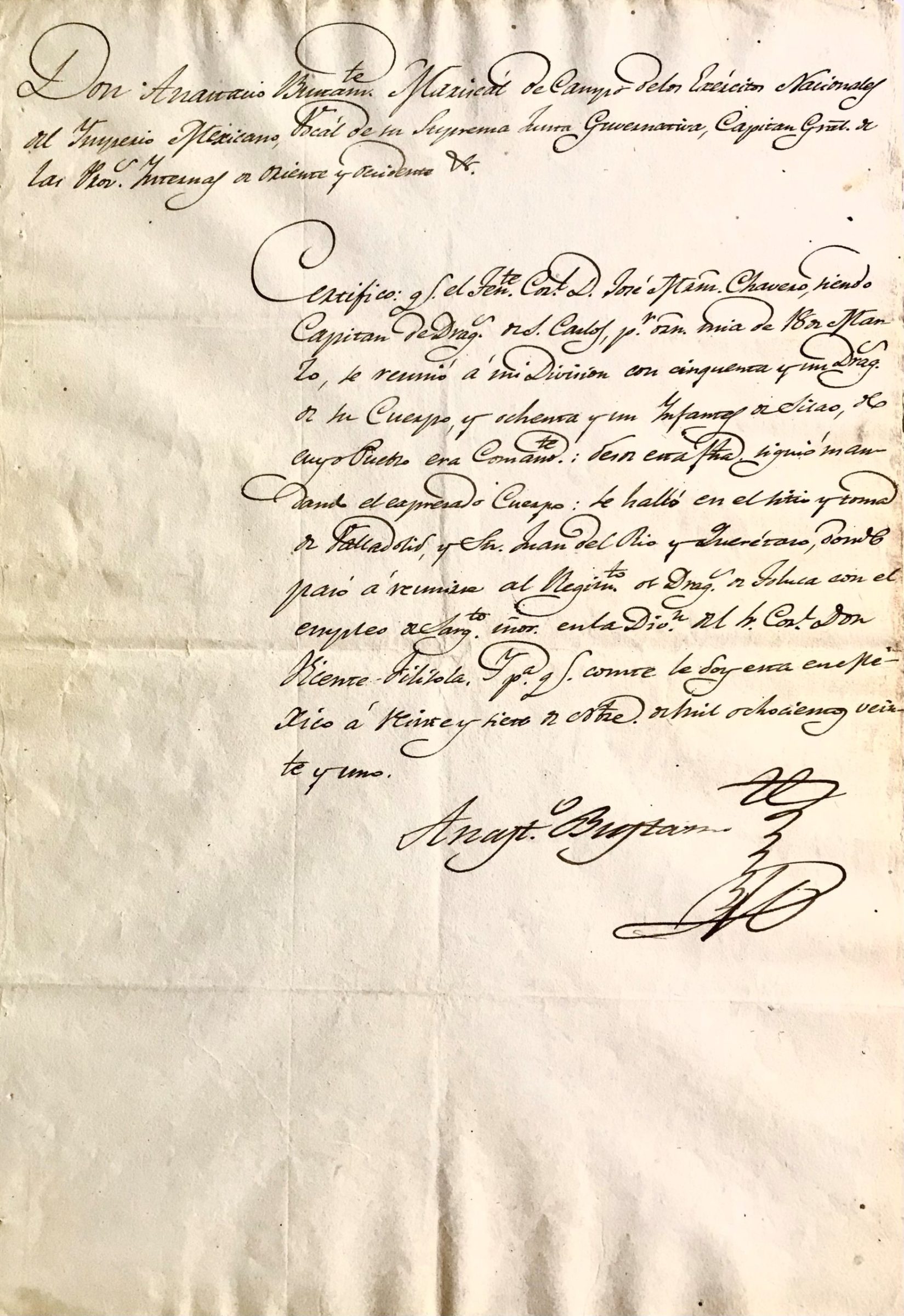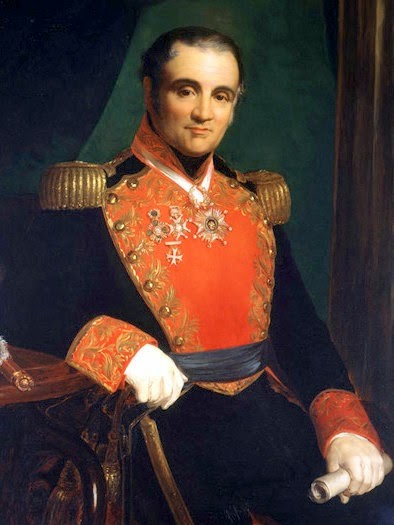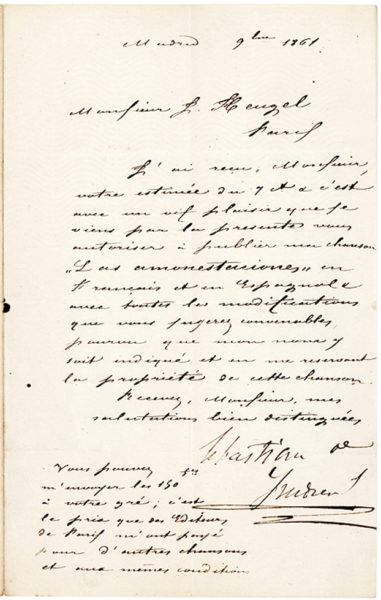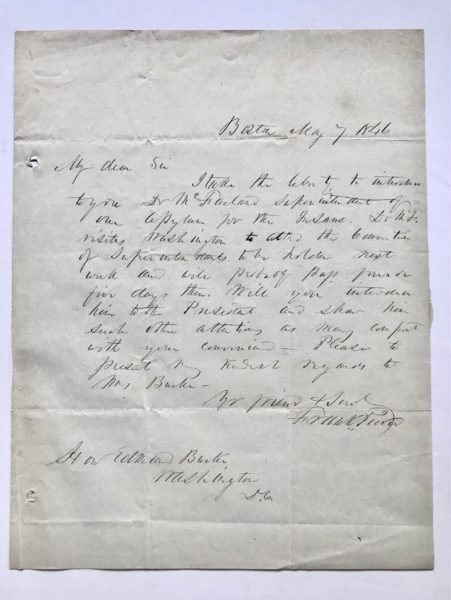BUSTAMANTE, ANASTASIO. (1780-1853). Military leader and three-time president of Mexico. LS. (“Anast. Bustamante”). 2/3p. Tall 4to. Mexico, October 27, 1821. In Spanish with translation.
“Don Anastasio Bustamante, Field Marshal of the National Armies of the Mexican Empire, Member of its Supreme Governing Board, Captain General of the Eastern and Western Internal Provinces, etc.
I certify: that Lieutenant Colonel Don José Martínez Chavero, being Captain of the San Carlos Dragoons, and by my order of March 18, joined my division with fifty-one dragoons of his corps, and eighty-one infantrymen from Silao, of whose town he was Commander: he continued commanding the said corps from that date: He was at the siege and capture of Valladolid, and San Juan del Rio, and Querétaro, where he went on to join the Regiment of Dragoons of Toluca with the rank of Sergeant Major, in the Division of Mr. Colonel Vicente Filisola. And for the record I give you this in Mexico on the twenty-seventh day of October one thousand eight hundred and twenty-one.”





